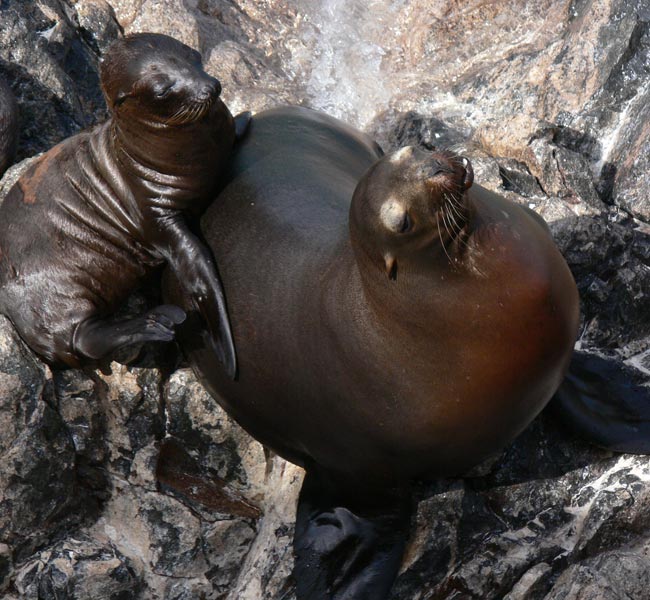Sea Lion Moms Adopt Orphaned Babies

Get the world’s most fascinating discoveries delivered straight to your inbox.
You are now subscribed
Your newsletter sign-up was successful
Want to add more newsletters?

Delivered Daily
Daily Newsletter
Sign up for the latest discoveries, groundbreaking research and fascinating breakthroughs that impact you and the wider world direct to your inbox.

Once a week
Life's Little Mysteries
Feed your curiosity with an exclusive mystery every week, solved with science and delivered direct to your inbox before it's seen anywhere else.

Once a week
How It Works
Sign up to our free science & technology newsletter for your weekly fix of fascinating articles, quick quizzes, amazing images, and more

Delivered daily
Space.com Newsletter
Breaking space news, the latest updates on rocket launches, skywatching events and more!

Once a month
Watch This Space
Sign up to our monthly entertainment newsletter to keep up with all our coverage of the latest sci-fi and space movies, tv shows, games and books.

Once a week
Night Sky This Week
Discover this week's must-see night sky events, moon phases, and stunning astrophotos. Sign up for our skywatching newsletter and explore the universe with us!
Join the club
Get full access to premium articles, exclusive features and a growing list of member rewards.
Female California sea lions that have lost a baby are willing to unite with a pup that has lost its own parents, according to research that has produced the first evidence of adoption among these aquatic mammals living off the west coast of North America.
While it is not uncommon for animals to provide care for others' babies, such as occasional nursing or baby-sitting – a trait shared with humans and known as alloparenting – evidence of adoption is much less common, according to Ramona Flatz, who conducted the research as a graduate student at Arizona State University. This is, in part, because adoption can be difficult to identify, she said.
At two sites in the Gulf of California, Flatz captured pups, gave them what she refers to as "unique haircuts" (an identifying code shaved onto their backs) and took toe clippings for DNA analysis. Later she collected biopsies from the females from whom the pups were nursing. She then compared specific points in the mothers' and pups' genetic codes to determine if they were related.
At one site, on San Jorge Island, six out of 109 pairs were not related. The second site, Los Islotes Island, had a higher proportion: nine out of 51.
Because California sea lion pups show a strong preference for their own mothers, and mothers are able to recognize their own cubs and react aggressively when someone else's pup comes within a couple of feet, the nursing of an unrelated pup is likely evidence of adoption, not alloparenting, according to Flatz and her co-author, Leah Gerber.
"In all these adopt events, what we know is females are nursing a single pup and that pup is not her own," Flatz told LiveScience.
For roughly the first year of their lives, pups are completely dependent on their mothers for survival, so by adopting an orphaned pup, a lactating mother who has lost her own pup or miscarried saves its life, Flatz said.
Get the world’s most fascinating discoveries delivered straight to your inbox.
Ultimately, adoption, even at low rates, has the potential to influence long-term population growth among the sea lions, according to Flatz and Gerber's report, which was published in the open-access journal PLoS ONE Nov. 8.
- Top 10 Animal Recruits in War
- Gallery: Under the Sea: Life in the Sanctuaries
- 10 Things That Make Humans Special
 Live Science Plus
Live Science Plus











